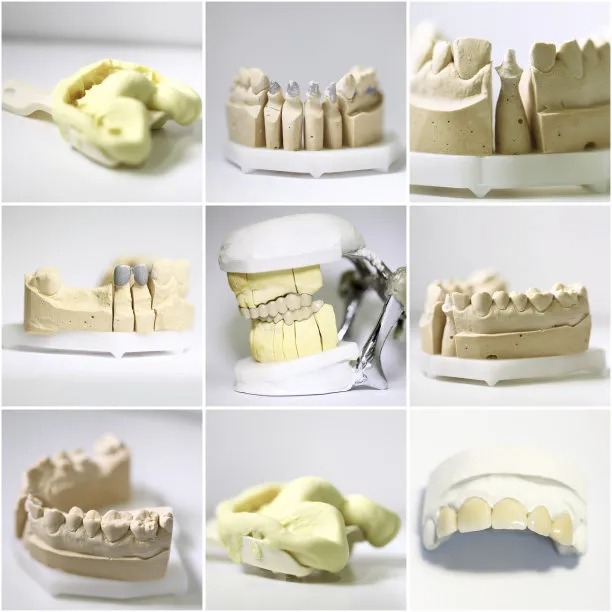The Comprehensive Guide to Dental Implant Treatment for a Healthier Smile and Enhanced Confidence
Summary: Dental implants not only restore functionality but also enhance self-confidence and aesthetic appeal. This comprehensive guide highlights the importance of understanding the dental implant process, the types of implants available, the benefits they offer, and the aftercare involved in maintaining a beautiful smile. By demystifying each stage, patients can make informed decisions about their oral health and improve their overall quality of life through effective dental treatments.
The Importance of Understanding Dental Implants

Understanding dental implants is fundamental for anyone considering this treatment. Dental implants are artificial tooth roots, typically made of titanium, that are surgically placed into the jawbone to support replacement teeth or bridges. This treatment is ideal for those who have lost a tooth due to injury, periodontal disease, or other reasons, and provides a permanent solution compared to dentures or bridges.
A key aspect of grasping why dental implants are important is recognizing their natural feel and function. Unlike dentures that can slip or feel bulky, implants integrate with the bone and function like natural teeth, allowing patients to eat, speak, and smile without worry. This greatly enhances comfort and quality of life.
Additionally, understanding the procedure and the recovery timeline can alleviate anxiety. Prospective patients should be aware of the steps involved, from the initial consultation to the surgical placement and the healing period, which typically ranges from several months to a year depending on individual circumstances.
The Different Types of Dental Implants
Dental implants come in various forms, primarily categorized into endosteal and subperiosteal implants. Endosteal implants are the most common type, involving the placement of the implant directly into the jawbone. These are suitable for individuals with a healthy jawbone and typically involve placing one implant per missing tooth.
Subperiosteal implants, on the other hand, are placed under the gum but above the jawbone, making them appropriate for patients who may not have sufficient bone height for endosteal implants. Understanding these options ensures that patients work with their dental provider to choose the most suitable implant type based on their unique anatomical needs.
There are also advanced techniques, such as mini implants and zygomatic implants, which can be beneficial for specific cases. Mini implants are less invasive and often used for securing dentures, while zygomatic implants can be a solution for severely resorbed jaws. Thus, it is crucial to explore the best surgical options tailored to individual situations.
The Benefits of Dental Implants
One of the primary benefits of dental implants is their durability and longevity. When properly cared for, implants can last a lifetime, making them a worthwhile investment in ones oral health. This aspect significantly differentiates implants from traditional dentures, which often require replacements every few years.
Moreover, the aesthetic enhancement provided by dental implants cannot be overstated. Patients who receive implants typically report an increase in self-esteem and confidence, as they can smile and engage socially without feeling self-conscious about missing teeth. This psychological boost can lead to improved interpersonal relationships and overall happiness.
Finally, dental implants contribute positively to oral health by preventing bone loss that often accompanies missing teeth. When teeth are absent, the jawbone deteriorates over time due to a lack of stimulation. Implants act as artificial roots, providing the necessary support and preventing bone resorption, thus maintaining facial structure and health.
The Aftercare for Dental Implants
Aftercare is vital to ensure the long-term success of dental implants. Patients are typically advised to maintain an excellent oral hygiene routine, which includes brushing, flossing, and using antibacterial mouthwash to minimize the risk of infection. Regular dental check-ups are also essential for monitoring the health of the implants and surrounding gums.
Additionally, patients should be mindful of their dietary choices, especially in the initial weeks following surgery. Soft foods are encouraged to avoid putting pressure on the healing implants, while avoiding hard or sticky foods can prevent premature damage. A balanced diet rich in vitamins and minerals can promote healing and maintain oral health.
Lastly, lifestyle choices such as smoking and excessive alcohol consumption can impair the healing process and affect implant longevity. Patients should communicate openly with their dental providers about any lifestyle factors that could impact their treatment outcome and seek guidance on making healthier choices for enduring oral health.
Summary: In conclusion, understanding the comprehensive dental implant treatment process can empower individuals to achieve healthier smiles and enhanced confidence. From grasping the importance and types of implants to recognizing the myriad benefits and proper aftercare, this guide aims to educate future patients on making informed decisions regarding their dental health.
Ultimately, dental implants stand out as a transformative solution that not only restores functionality but also elevates one’s self-esteem.
This article is compiled by Vickong Dental and the content is for reference only.



